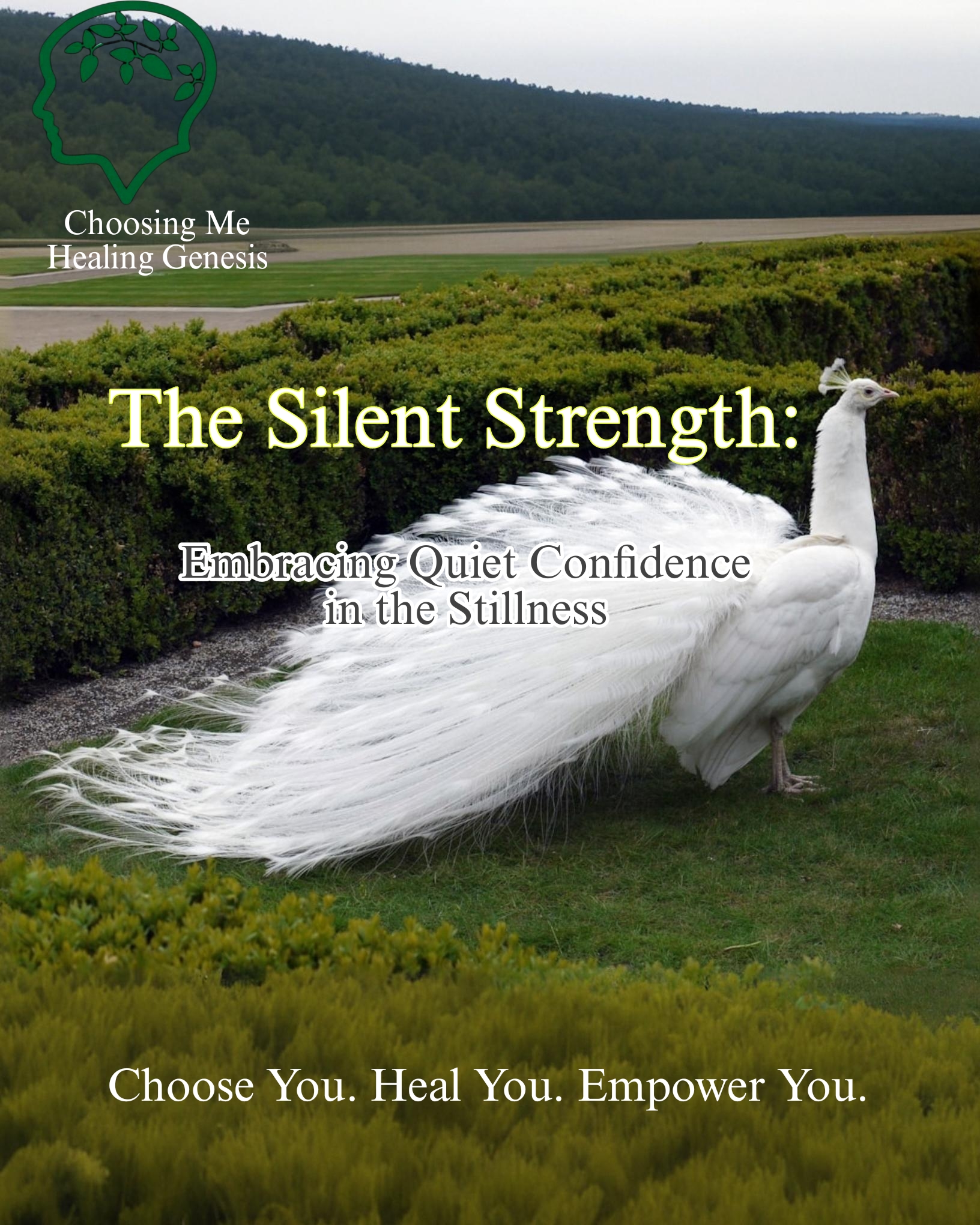The Silent Strength: Embracing Quiet Confidence in the Stillness
In a world that seems to measure worth by how much you do, the idea of simply sitting still – without tasks, without proving or performing – can feel foreign, even unsettling. We’re trained to keep moving, to fill every moment with something productive, as if the absence of activity is somehow a void that needs fixing. But what if stillness isn’t a gap? What if silence isn’t empty at all but is, instead, the very fullness we’re missing?
The struggle with silence isn’t just about avoiding “doing nothing.” It’s that deeper tug, the nagging sense that if you’re not constantly moving, achieving, or connecting, you’re wasting time, maybe even wasting yourself. This urge – the need to fill silence, to flee from our own quiet – can mess with us more than we realize. We end up in places we didn’t plan to go, saying yes to things we don’t even want, simply because it feels easier than facing the pause, the quiet.
The Cost of Proving Yourself All the Time
When we can’t sit comfortably in stillness, we start to live our lives reacting, instead of acting with intention. We accept invitations we don’t want, stay in conversations long past our interest, or keep running a mile a minute, never questioning why we’re running in the first place. Over time, this habit of avoiding silence can exhaust us and even erode our sense of self.
Think of it like this: if you’re constantly trying to be seen, heard, and validated, the part of you that truly matters starts to get lost. You become an echo of what others need, instead of a clear voice of who you really are. Ironically, the more we avoid the discomfort of silence, the more disconnected we become from ourselves.
Is Embracing Silence a Skill – Can You Learn It?
It might seem odd, but embracing silence is a gift, and like any gift, it can be honed. The truth is, we’re all capable of learning to sit comfortably in quiet. It starts small – taking five minutes each day to simply be still, noticing every urge to check your phone, make a mental list, or start the next task. Instead, you acknowledge these thoughts and let them pass, reminding yourself you don’t need to “fix” the silence.
This doesn’t mean you’ll immediately feel peace in those moments. Some days, sitting quietly can feel like an itch you can’t scratch, or a cold shadow creeping up behind you. But over time, the practice of choosing silence starts to pay off. You learn that silence is not absence. It’s presence. And this kind of presence deepens your relationship with yourself.
How to Redeem Yourself When Silence Feels Like Failure
Sometimes, in the process of trying to prove ourselves, we mess up. Maybe you’ve overcommitted, made choices just to keep yourself busy, or put yourself in situations where you don’t belong, all in a bid to escape silence. Recognizing this is actually a powerful first step toward redemption. Because once you realize that it’s okay to step back, to say, “I was trying too hard,” or even, “I didn’t need to do that,” you’re already reclaiming a piece of yourself.
Redemption comes not from more effort but from less. From learning to breathe deeply in those uncomfortable pauses, from reminding yourself that it’s okay to be, just as you are. If you’re ever overwhelmed by the mistakes you’ve made while avoiding stillness, remember this: making peace with silence isn’t a single destination but an ongoing journey. You’ll slip up, you’ll try again, and with each attempt, you’ll find yourself feeling just a little more at home in your own skin.
—
It’s in this journey of finding comfort in the quiet that we meet ourselves. No masks, no tasks. Just the pure, unfiltered self, learning slowly, but surely, that silence is not our enemy. It’s our chance to finally listen.


0 Comments